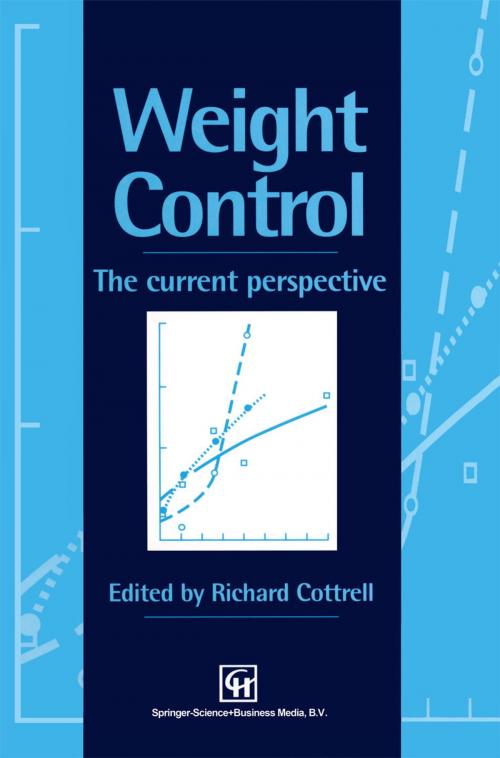Weight Control
The current perspective
Kids, Natural World, Nonfiction, Reference & Language, Education & Teaching, Science & Nature, Science| Author: | Richard Cottrell | ISBN: | 9789401105835 |
| Publisher: | Springer Netherlands | Publication: | December 6, 2012 |
| Imprint: | Springer | Language: | English |
| Author: | Richard Cottrell |
| ISBN: | 9789401105835 |
| Publisher: | Springer Netherlands |
| Publication: | December 6, 2012 |
| Imprint: | Springer |
| Language: | English |
The mechanisms controlling body weight or, to be more specific, that component of body mass that consists of adipose tissue is an active area of scientific research. Two stimuli can be discerned that give a sense of urgency to this research. The first is the data, from many sources, confirming an inexorable upward trend in the prevalence of overweight and obesity in developed countries. The picture in the emerging nations is unclear because of both a lack of appropriate survey data and the continued scourge of under nourishment among their poor. It is likely, however, that, throughout the world, wherever disposable income and food availability are high, obesity and overweight will be a continuing and increasing problem. The second driving force among researchers is the realization that, to date, there has been little success in either stemming the tide of individuals experiencing excessive adiposity or enabling them to recover a more desirable body weight and composition. Such are the problems. But significant progress in research into the origins and treatment of this condition is being made, and in recent years has been brisk. Technical advances (such as the ability to measure total energy expenditure in free-living individuals with good reliability), new and imaginative thinking and a determination not to be satisfied with hypotheses until they have been thoroughly challenged by experiment have yielded significant advances.
The mechanisms controlling body weight or, to be more specific, that component of body mass that consists of adipose tissue is an active area of scientific research. Two stimuli can be discerned that give a sense of urgency to this research. The first is the data, from many sources, confirming an inexorable upward trend in the prevalence of overweight and obesity in developed countries. The picture in the emerging nations is unclear because of both a lack of appropriate survey data and the continued scourge of under nourishment among their poor. It is likely, however, that, throughout the world, wherever disposable income and food availability are high, obesity and overweight will be a continuing and increasing problem. The second driving force among researchers is the realization that, to date, there has been little success in either stemming the tide of individuals experiencing excessive adiposity or enabling them to recover a more desirable body weight and composition. Such are the problems. But significant progress in research into the origins and treatment of this condition is being made, and in recent years has been brisk. Technical advances (such as the ability to measure total energy expenditure in free-living individuals with good reliability), new and imaginative thinking and a determination not to be satisfied with hypotheses until they have been thoroughly challenged by experiment have yielded significant advances.















